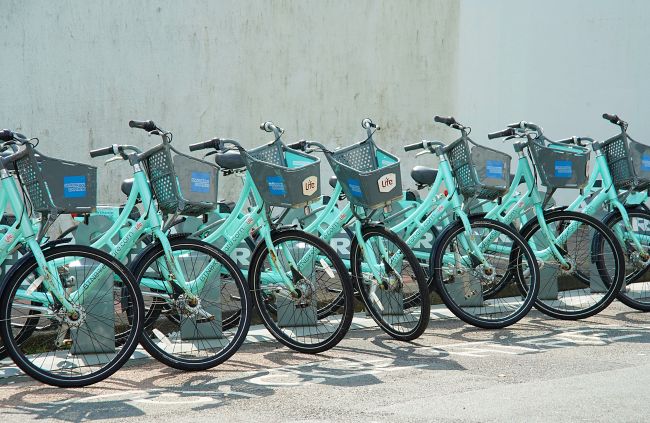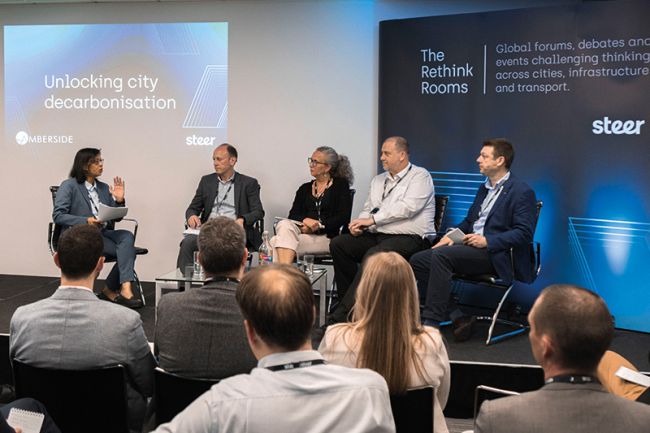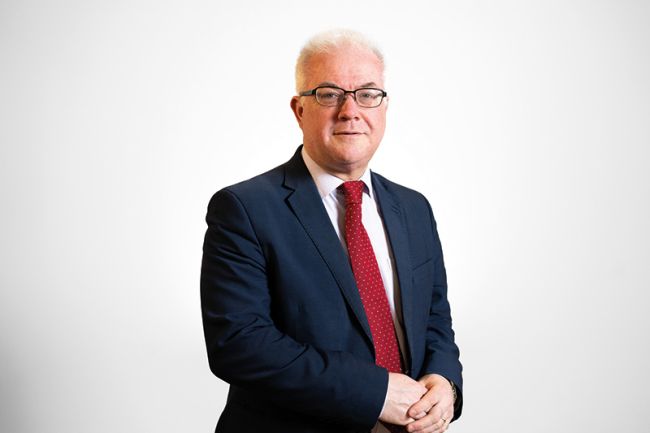TDM for tech: Reducing employee vehicle commutes in car-centric California
Since 2019, Steer has worked with top California tech clients to plan and implement transportation demand management programs.

Since 2019, Steer has been working with high-profile, global clients from California’s cornerstone industry, the tech sector, on planning and implementing transportation demand management (TDM) programs.
Tech companies can be identified with an outwardly forward-looking agenda, illustrated by Apple powering 100% of their global facilities with renewable energy and Microsoft aiming to replenish more water than it uses by 2030.
Employee commuting falls into an organization’s Scope 3 emissions, and reducing this is a key stepping stone on the road to Net Zero. Through our TDM expertise, Steer has assisted some of the world’s most well-known tech brands in this mission.
However, while reducing employee private vehicle trips and their resulting carbon footprint is a key concern, this is not the only application for TDM. Wider environmental, social and governance (ESG) goals can also be met through TDM strategies, as well as meeting regulatory compliance at the city, regional and state levels. Equity outcomes loom large due to both unequal access to vehicles and differing offers for international employees of global companies, as do employee satisfaction and retention in a competitive market for skilled workers.
“The first step is to understand and analyze what, exactly, a client is trying to achieve and how a TDM program can support those objectives,” says Parama Ghosh Roy, a TDM Specialist in Steer’s Los Angeles office.
“So, depending on those motives, we then need to figure out what deters employees from travelling more sustainably or what would potentially encourage employees to try sustainable travel choices,” she adds.
“This can effectively be done through a data lens, using client data and third-party mobile location data sets, as well as a behavioural lens, using employee engagement, surveys and focus groups. Through that process, we want to collect as much insight and feedback as possible before we develop TDM recommendations.
“From there we create the TDM road map where we are looking into what strategies are going to be most effective, what program implementation looks like, and how that can align with the objectives that we established at the beginning of the project.”
TDM in a challenging environment
California can prove a challenging environment for TDM due to its car-centric culture. There is a strong cultural attachment to personal vehicles in the state, aided and abetted by both the SoCal and NorCal regions’ sprawling urban areas, making car use difficult to avoid.
Currently, there are roughly 27 million registered vehicles in California, and 75% of Californians drive solo to work every day, according to the American Community Survey. However, despite this, many of our clients are keen to explore innovative ways to reduce private vehicle use at their worksites and bring down greenhouse gas emissions.
“They recognize that potential,” says Parama.
“Sometimes the challenge is understanding what they really want and how you cater your TDM road map to that.
“But even if employers want to do something, they're not sure that employees will adopt it because people are so used to driving. That being said, California has been at the forefront of TDM innovation, and there's a lot of work happening in this region.”
Cities and regions across southern California are actively working to improve infrastructure and services and there are many policies and ordinances, such as the South Coast Air Quality Management District’s (SCAQMD) Rule 2202, that require employers to provide commuter benefits to employees.
Statewide, the Caltrans Active Transportation Program apportions funding for walking and biking infrastructure and programs while increasing amounts of funding are being invested in multimodal transportation infrastructure and services at the city and regional levels. The City and County of San Francisco’s 2022 Transportation Plan 2050 include over $90 billion in transportation investments, the vast majority of which is targeted at sustainable transportation options, while the Southern California Association of Governments (SCAG) Connect SoCal 2024 includes over $750 billion in transportation investments over the next 25 years, over half of which is dedicated to transit and active transportation projects.
“A lot is happening, but you can’t change the culture instantaneously,” says Parama.
“In Santa Monica where we work, there's a lot of active transportation infrastructure and when you have things like bike lanes being built, more and more employees will try a different mode than driving to work.”
Creating a workable plan is one thing, but achieving buy-in from employees is a different matter. One of Steer’s key strengths is joining the dots on TDM through employee engagement and creating a program that reflects both company needs and the local context.
“It’s really helpful to do some sort of a commuter survey to understand where people live and what kind of modes they're really interested in,” says Parama.
“For example, in some areas without good transit connectivity, you might focus more on carpooling or vanpooling.
“What's also really important is communication; how do you make sure that whatever you're doing is communicated well, and how do you make sure that employees are aware of it and they are actively participating in it?”
Bringing international best practice to TDM
Many of Steer’s tech clients have offices around the globe just like we do, so we’re able to create and implement TDM strategies for all of our client’s global worksites. Understanding government legislation, existing transportation options, and cultural differences across office locations in Asia-Pacific, North America, Europe and Latin America means that Steer is able to offer our winning combination of international best practice and locally specific knowledge.
“A lot of employers provide a pre-tax benefit in the US, so you can actually deduct $315 from your pay cheque every month on a pre-tax basis that you can use for commuter expenses,” Parama points out.
“In India, it's quite common for large employers to provide some sort of a shuttle/cab service or vanpool service.
“In London, there's the season ticket loans for public transit and cycle to work schemes, while Amsterdam has a tax benefit policy that allows companies to provide reimbursements to employees based on the distance travelled from home to work.
“Figuring this out and finding the best way to communicate and deliver both required and voluntary commuter benefits to employees is part of the process.”
“It has been extremely rewarding to support tech clients globally with our award-winning behaviour change strategies for the purpose of influencing sustainable travel choices, driving more successful commuter program outcomes, and improving employee satisfaction.”


















